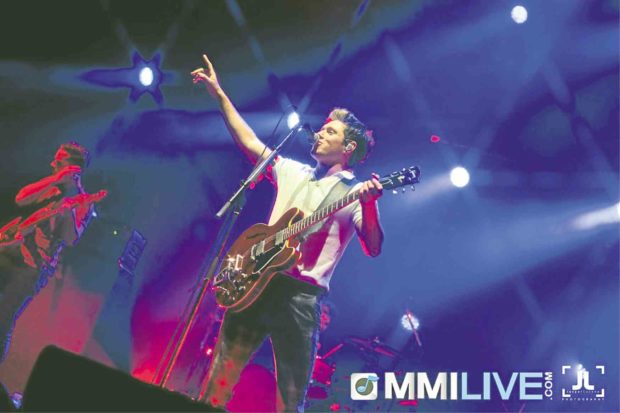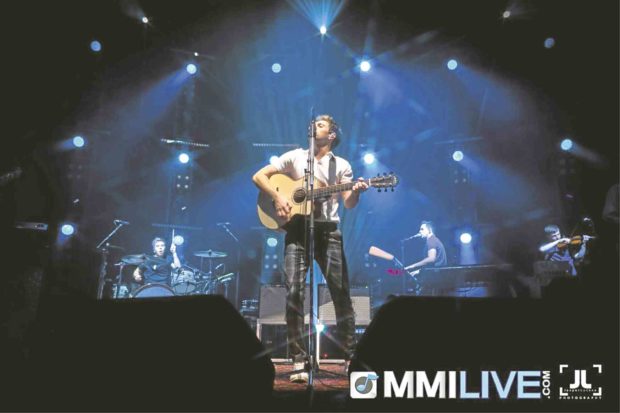Niall Horan is an adept vocalist. He writes his own songs and is a proficient guitarist. Some would even argue that among the members of the pop boy group One Direction, he’s the most musically astute.
And yet, most of his time with the band was spent in the shadows of his more popular colleagues—breakout stars, Zayn Malik and Harry Styles.
The narrative stayed more or less the same after the band went on an indefinite hiatus four years ago, with all the focus firmly on how Zayn and Harry’s perceived rivalry would pan out: Who will have the better debut record? Who will be the bigger solo artist?
As it all happened, Niall buckled down to work and did his own thing.
Top spot
Then, in October last year, with relatively less fanfare, the Irish musician dropped his first studio album, “Flicker,” which, like Zayn’s “Mind of Mine” and Harry’s self-titled effort, reached the top spot of the Billboard 200 chart.
But more than its surprise commercial success, “Flicker,” more crucially, gave the public a better idea of what Niall really is as an artist—an unassuming singer-songwriter who’s at his most comfortable and confident with an acoustic guitar slung over his shoulders and breathing life into down-to-earth folk-pop tunes.
Four years after One Direction’s two-night Manila concert, the 24-year-old recording artist returned to the city earlier this month and brought his first headlining tour to the SM Mall of Asia Arena.
This time, the spotlight was all his.
“This is absolutely insane! And it’s fantastic to be back here in the Philippines…I was here a few years ago,” Niall told the eager crowd, whom he thanked profusely for braving the unrelenting monsoon rains. “It’s a beautiful country with beautiful people!”
Earnest
True to his album, the concert revolved around earnest folk-pop balladry. “This Town,” a gentle, country-tinged acoustic song, which Niall delivered emotively, flourished with occasional vocal breaks. The slow-burning “Paper Houses,” which surged toward a rousing end, wouldn’t feel out of place in an Ed Sheeran record.
“Too Much to Ask,” another standout, was an achingly beautiful heartbreak song, which had Niall pleading, wondering: “And oh, love, watch the sun coming up/ Don’t it feel f*cked up we’re not in love?” On “Fire Away,” fans hoisted signs on which inspirational messages were scribbled. “You’re my flicker of hope,” one read.
The night’s most poignant moment, meanwhile, happened during the lullaby-like “Flicker.”
Niall asked the concertgoers to put away their mobile phones and close their eyes. A hush blanketed the venue as Niall began to sing behind the hazy stage lights. The fans—
mostly young girls—waved cutout stars along with the music; some couldn’t help but sob.
“This is my favorite song in the album. It took me 20 minutes to write, because I knew exactly what I wanted to say and how to say it,” he related. “It just came out, and that was it.”
Much of Niall’s music was inspired by such classic rock, country and blues acts as Fleetwood Mac and The Eagles. Thus, he made sure to pay tribute to one such artist—his all-time favorite, Bruce Springsteen—with a performance of the pop-rock classic, “Dancing in the Dark.”
Quiet assurance
“If you know it, you can sing along with me. If not, then just dance!” said Niall, who wore a nondescript white polo shirt and a pair of plaid pants.
Though his repertoire was composed mostly of midtempo tunes, Niall did crank the pace up every so often. And when he did, he exuded a quiet assurance, as in “On the Loose,” a slick, funky pop-rock song with hypnotic, pulsating synth beats. He also revived One Direction nostalgia with a rambunctious take on “Drag Me Down.”
Toward the end of the concert, mounted by MMI Live and Smart Music Live, Niall elicited the most spirited sing-along with the catchy and sultry “Slow Hands,” which is by far his most successful single.
“I live on the other side of the planet and to come to a country like this and play a show for you guys is just… Thank you to every single one of you. I love you all so much!” he said, his voice getting drowned out—not by the vocals of band mates for whom he played second fiddle—but by the screaming of fans all his own.



